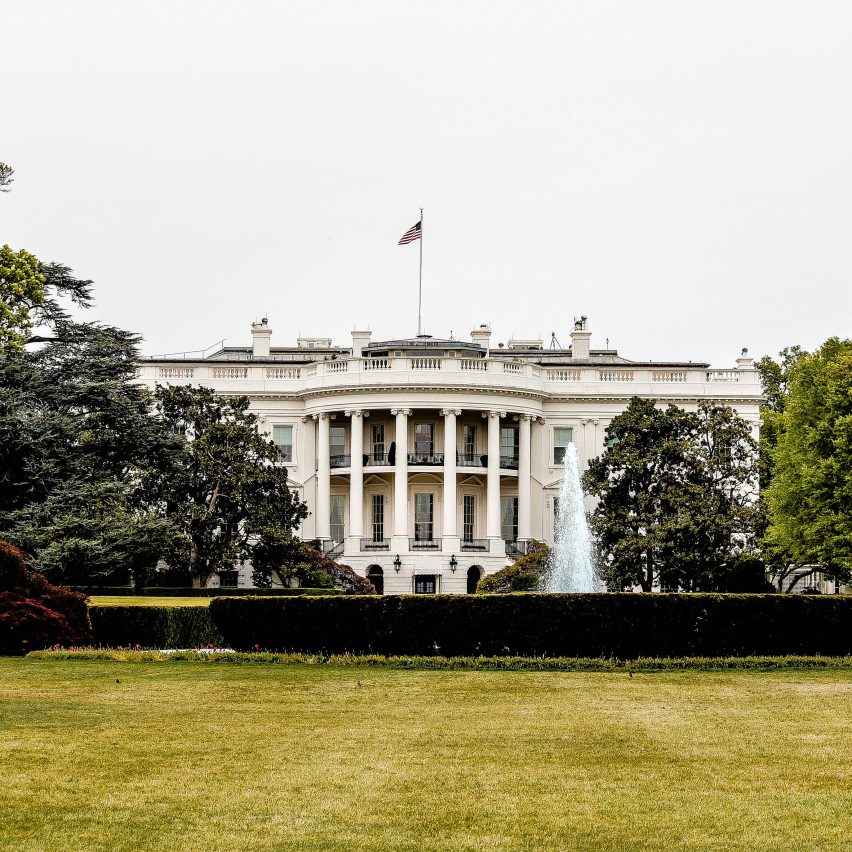
US president Joe Biden has signed into law the Inflation Reduction Act, a piece of legislation that includes a number of funding measures for sustainable construction including rebates for retrofits and tax incentives for new buildings.
The $370 billion bill, which aims to reduce carbon emissions by 40 per cent by 2030, includes funding for the implementation of energy codes, rebates for the electrification of houses and a greenhouse gas reduction fund.
The Inflation Reduction Act (H R 5376) was ratified by Congress on August 12th and signed by president Biden on Tuesday afternoon.
“Largest federal investment to combat climate change”
The American Institute of Architects, which lobbied the federal government for a number of provisions, called the bill “the largest federal investment to combat climate change in history”.
Other members of the architecture and design community lauded the bill.
“The legislation makes significant strides in addressing environmental and climate justice and ensuring underserved communities receive resources to adapt to a changing climate,” said members of the American Society of Landscape Architects federal government affairs committee in a statement on Monday.
More than $4.3 billion has been set aside for state-run energy agencies to develop the HOMES program, which, according to the AIA, “will reimburse homeowners and aggregators for whole-house energy savings improvements”.
Geared towards low- and moderate-income housing, the program would require local governments to reimburse homeowners for “whole-house energy saving retrofits”.
Further funds have been allocated specifically for the electrification of homes, which includes switching to electric appliances.
Tax incentives in the bill were geared toward the building industry and include Energy Efficient Commercial Building Tax Deduction (179D) as well as the New Energy Efficient Home Credit (45L).
Funds allocated for updated building codes
The bill includes clauses that delegate around $330 million for climate-oriented construction including grants for local governments to update building codes to the standards set by the 2021 International Energy Conservation Code (IECC).
States that implement the codes would be compensated from the fund.
‘
On the federal side, a large portion of the climate money has been allocated to the General Services Administration (GSA), an independent agency that supports the functioning of other federal agencies.
From this, $250 million will go towards facility retrofits, $2.15 billion will go towards “installing low carbon materials for the construction and alteration of buildings”, and $975 million will be used to research sustainable technologies.
“Greenhouse gas reduction fund” also approved
The bill also allocated $7 billion to the Environmental Protection Agency (EPA) to form a greenhouse gas reduction fund.
Measures in this section of the bill include incentives to reduce greenhouse gas emissions and “other air pollution emissions” and are especially geared towards emissions caused by gasoline-powered vehicles
The fund will help states to monitor emissions and encourage them “to adopt and implement greenhouse gas and zero-emission standards for mobile sources”.
“A step in the right direction”
The Inflation Reduction Act, which is a trimmed-down version of the Build Back Better Act, was welcomed by the AIA.
“Though the climate crisis still requires our unrelenting attention, this legislation is a step in the right direction,” said AIA’s chief executive officer Lakisha Ann Woods.
A recent report by the IPCC stated 1.5 degrees Celsius of warming will bring “irreversible” changes to the environment and made clear that the overall climate has already risen by about 1.1 degrees.
The architecture and the built environment sector has been criticised for not taking enough action. Yamina Saheb, a co-author of the latest report from the United Nations climate change panel, said that architecture is “lagging behind all other sectors” in terms of emissions.
The photography is by René DeAnda.
The post Ratified Inflation Reduction Act "largest federal investment to combat climate change in history" says AIA appeared first on Dezeen.
